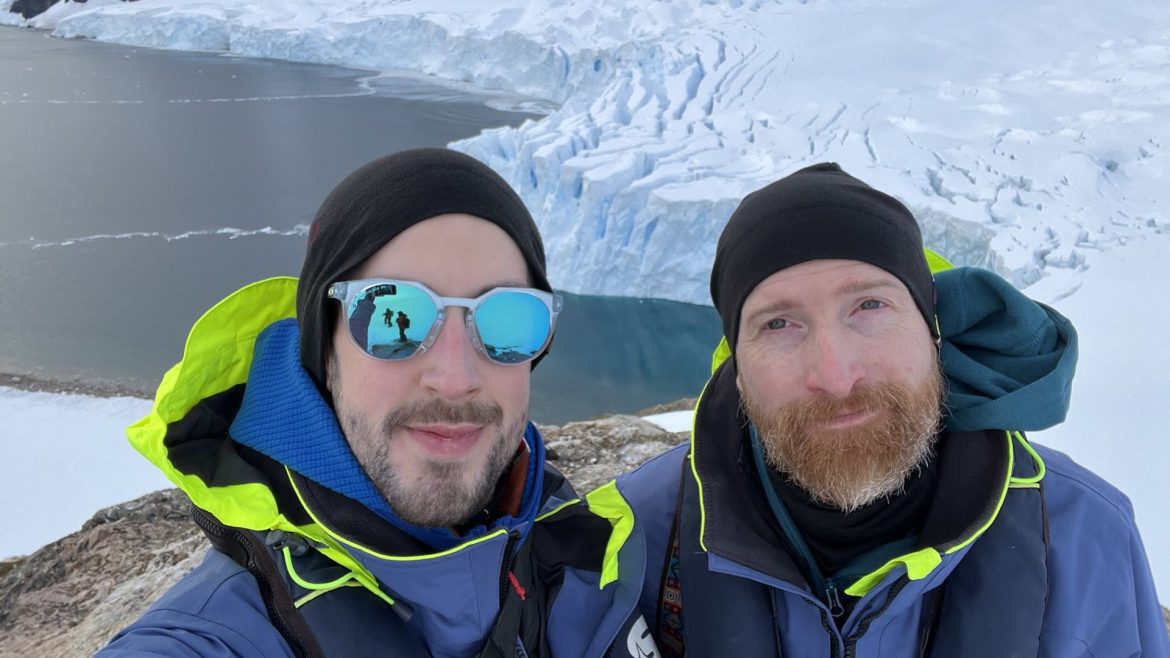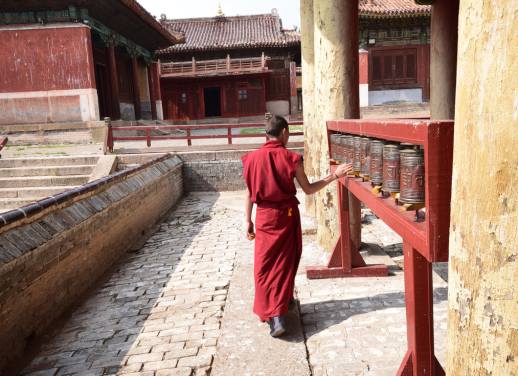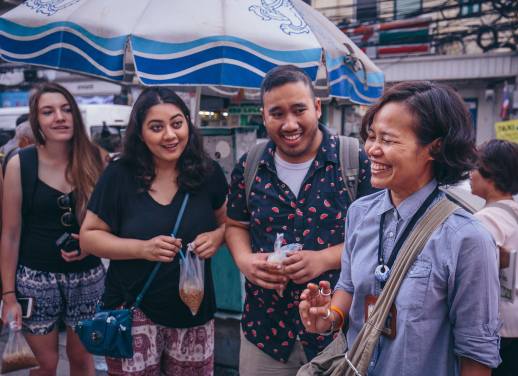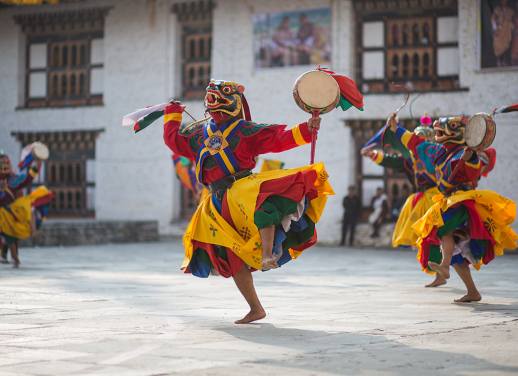Jay Parker has spent his life and career travelling to unexpected destinations. He explains why a country’s view on LGBTQIA+ rights doesn’t necessarily stop him from booking a ticket.
When you’re choosing where to travel, how often do you consider why not to visit? For some people – including people of colour, women, the differently abled and the LGBTQIA+ community – this is a key consideration. As an openly gay man, I’ve often had to take this into account, especially with LGBTQIA+ rights varying all over the world.
Working at Intrepid has in many ways given me a security blanket with which I can explore the world safely. I once asked our CEO, James Thornton, if Intrepid considers the culture and politics of a place when designing trips and going into new destinations. You might assume I’d prefer we don’t visit destinations where queer rights are lacking.
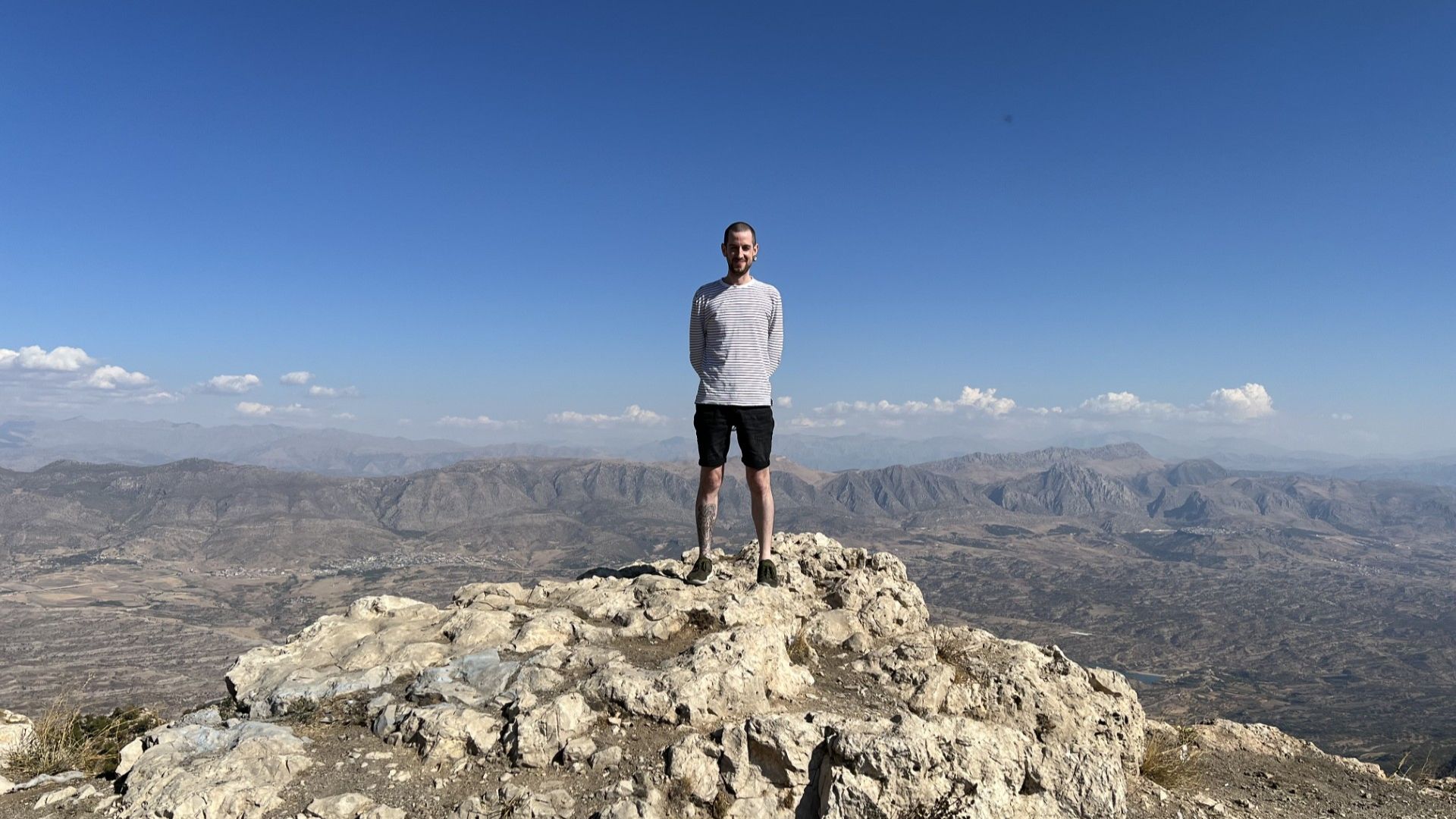
However, my perspective has always been more nuanced – even before I worked at Intrepid. I’m often asked why I visit countries such as Iraq or Saudi Arabia – both known for strict anti-gay laws – when boycotts can be seen as a valid form of protest. But I see travel as a mutual exchange. It’s not just about what I can get out of visiting a place, but what that place can get from my visit, too.
Travel brings new possibilities and the chance to meet people face to face, to exchange lifestyles and share views. There’s far more to be gained by visiting some of the places I’ve been to – Mongolia, Lebanon, Brunei and Bhutan among them – than there is to be lost by staying away.



Where it began
My queer identity and my travels are deeply linked. It all started with my ‘ah ha’ moment after falling for someone in New York – the final stop on a ten-month round-the-world backpacking trip at 18. Being away from home gave me headspace, with fewer considerations for everyone who knew me up until that point. I spent days exploring the city with him, not having to ‘mask’ my behaviours, interests and mannerisms – feeling liberated amid the unfamiliar and the unknown.
This deepened when I moved from the UK to Cambodia at 20 to start what would be the first job in my travel career, working for a small, Dutch tour operator. It also turned out to be opportunity for me to come out and start my new life living openly.
Not only was this a huge weight off my shoulders, but to feel treated as an equal in Cambodia by locals who came to know me – my colleagues at the office or staff at my regular bar and restaurant haunts – changed everything. It felt like it was more viewed as part of being a ‘quirky’ Westerner, rather than with animosity.
Read more: Exploring the world through queer literature
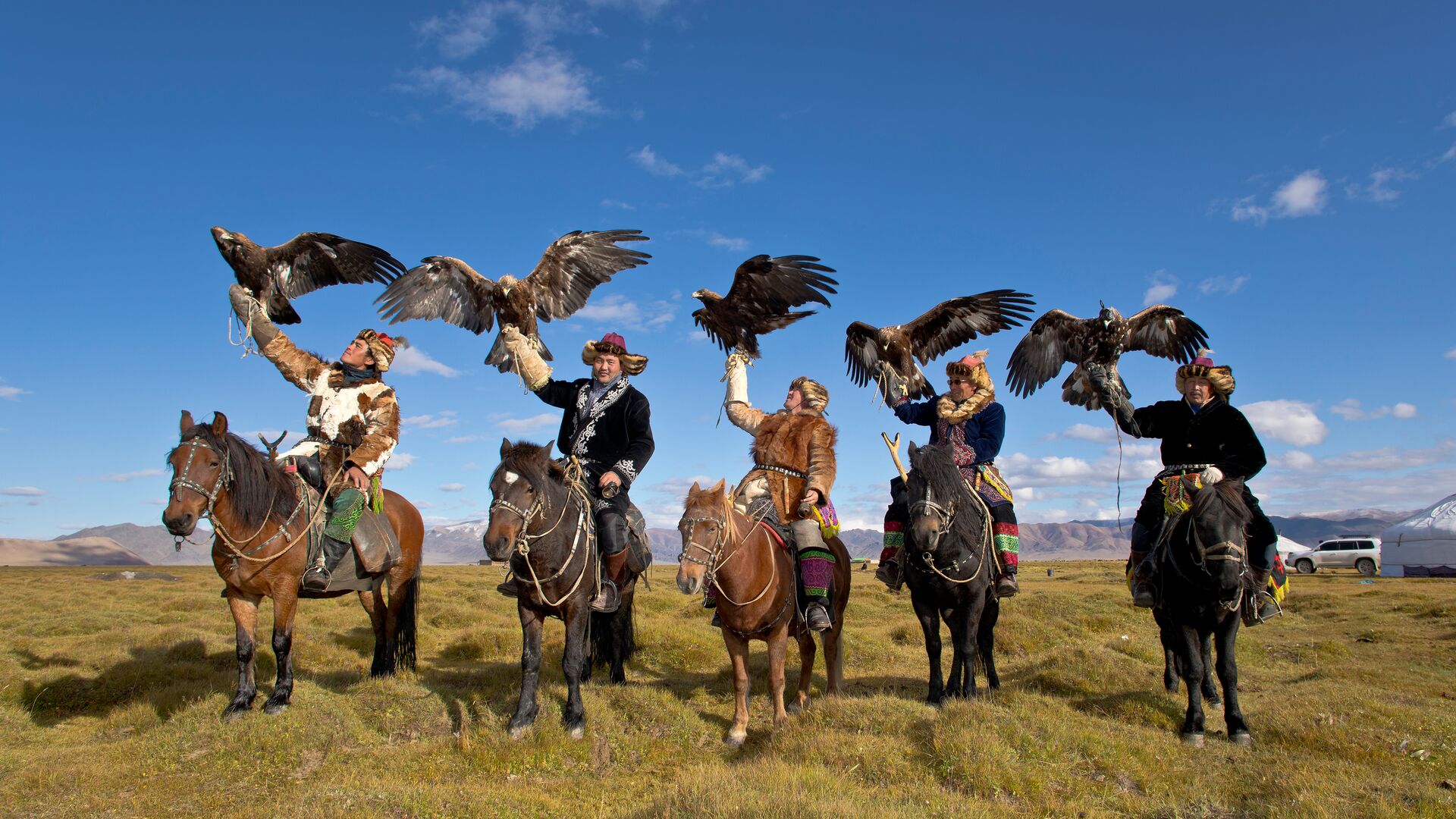
No one’s perfect
When you’re planning a trip from afar, it’s sometimes difficult to know where to draw the line. Should you not travel to the United States, for example, because Trump banned trans people from the military? Or not visit The Shard in London because it’s owned by Qatar?
How many travellers would vow to never see Saudi Arabia but wouldn’t bat an eyelid at visiting Vietnam, despite the latter having more journalists in prison, according to a recent Statista report. Especially with LGBQTIA+ rights being so inconsistent between countries, which metric do you use? If it’s same-sex marriage, then that’s only 38 countries to choose from, according to Equaldex, which is perhaps a limiting way to see the world.
I feel it’s also important to leave room for understanding why people hold the views they do. We’re all a product of our upbringing, culture, religion and politics. When I travel, I’m a guest in someone’s country, and disregarding this displays a lack of empathy – which mirrors the faltering foundations of homophobia.
During a trip to Mongolia in 2016, my partner and I shared a bed throughout the trip. Staff at the ger camp would enter the tent at night to stoke the fire and keep us warm. In those instances, when they saw two men sharing a bed, I hope they just saw two humans, rather than anyone to hold animosity towards. Even though Mongolia has mixed views on LGBQTIA+ rights, I hope in some small way – through our interactions with our driver, tour leader and local families we met – we challenged on-paper preconceptions with meaningful in-person interactions.



Approach things safely
I try to travel as openly as possible, when it’s safe to do so. However, often the laws and customs of a place mean you may not feel comfortable doing so. Some may see this as a compromise, but at home I don’t often lead with my queer identity either – even though ‘Hi I’m Jay and I’m gay’ rhymes perfectly.
Either way, I still take simple precautions while travelling, using ‘partner’ and they/them pronouns if he isn’t with me, as well as turning my social media to private during a visa-application process. If I’m booking a property myself and feel cautious, I go with a larger hotel chain, as they often have more international accountability.
That said, my same-sex partner and I have shared a double bed in destinations including South Africa, Myanmar and Ukraine. But if we need to go with twin beds to feel safer, we’ll go with that option.
Other places have surprised us: during check-in at a private riad in Marrakech, our housekeeper asked if we’d like one or multiple rooms made up. We briefly hesitated before asking for a double bed. The next day when she arrived to make breakfast, after coming in off the street, she removed her hijab – something she’d been wearing inside the previous day. I’ll always wonder if this unspoken familiarity was because we were gay men, a sign that she had shifted in some small way to understand our relationship and identities.
Read more: How group travel helped me as a trans traveller
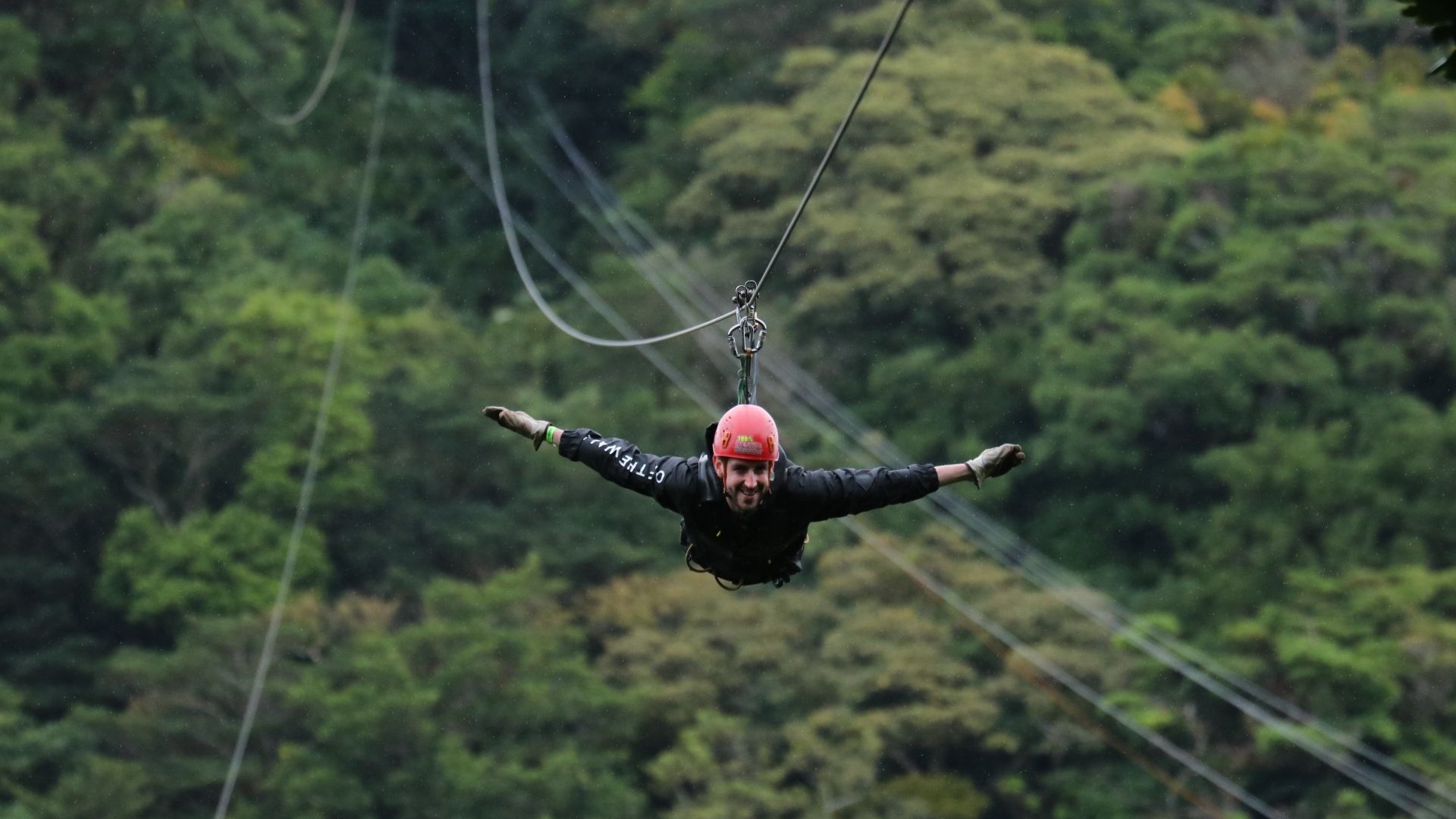
Taking small precautions
Of course, the one ‘why not’ I consider a deal-breaker is my personal safety. I make a call after researching local laws, when and how laws were previously enforced, accounts from queer locals and the possibility of assault or vigilantism.
As a solo traveller, I know that simply existing as a gay man anywhere in the world does not in itself violate any law. Nearly all anti-gay laws are based on physical interaction.
However, when travelling together, sometimes you can’t fly under the radar, even if you tried. Once my partner and I were walking around Istanbul’s Grand Bazaar, not holding hands, thinking we were presenting as two male friends. A male shopkeeper stood in his doorway: ‘What a beautiful couple!’ he said, bursting our bubble and uniting us all in a laugh.
Read more: Explore these LGBTQIA+ travel hotspots



Head out and surprise yourself
Yes, I’m a gay man, but as a white, male, British passport holder with the disposable income to travel, great skin and amazing eyelashes, the world of travel is still laid at my privileged feet.
When I’ve been able to travel openly, maybe the people I’ve met have learnt something new about me, about tourists, about British people – or about gay men. Maybe you can use that tourist privilege you’re afforded for good. After all, many queer locals would rather you visit their country than stay away, in order to help push things forward – even if it’s on a nano scale.
Laws change because the population believes they should – and how do you help inform someone’s beliefs? By sharing experiences, meeting people, breaking bread and humanising their image of what a gay person is.
In spite of the presiding laws of a country, humans are greater than the sum of their laws, the media headlines or how a certain government represents them. After all, do you always feel represented by the laws of your country?
For me, travel is at its most rewarding when it challenges perspectives and makes you stop, think and reflect. So, maybe the next time you’re choosing a destination, it’s time to challenge your own criteria, too.
Expand your travel horizons with Intrepid’s small group tours and adventures.

